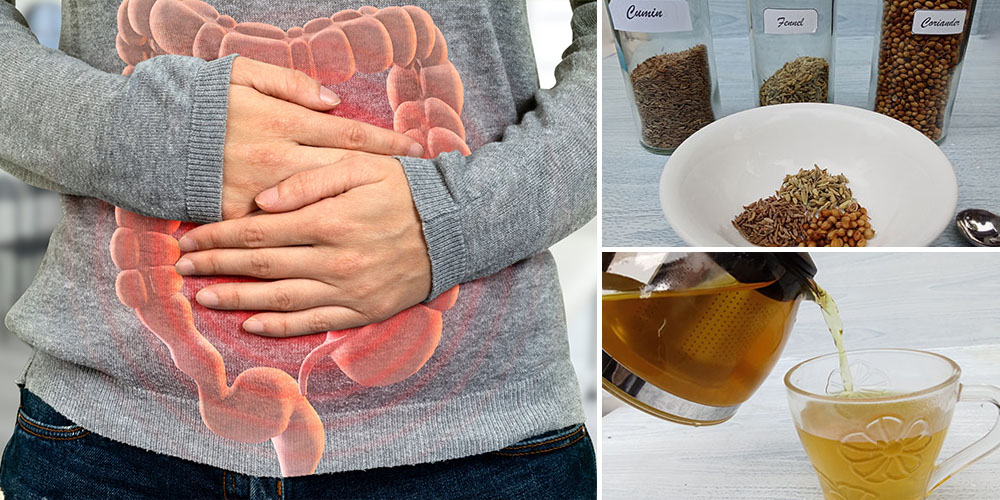
7 Hidden Signs Your Gut Needs Help
Gut problems do not always manifest obvious symptoms. There are at least 7 hidden signs your gut needs help. Even when examined, some gut-related diseases do not show anything wrong with the GI tract. The absence of visible irregularities of some GI problems put off early diagnosis, which could have helped prevent it from worsening if found early.
7 Hidden Signs of Gut Problems
Every one of us experiences occasional gut pain and discomfort. It could probably be caused by something that we eat, sensitivity to a particular ingredient, an infection, or a side effect of a medication that we take. A recurring upset stomach like bloating, gas pain, and other digestive issues is not normal and are clear signs of a gut problem. There are also hidden signs that inconspicuously point to a gut issue we often ignore and relate to other health problems such as:
1. Unintentional Weight Fluctuation
Weight gain and weight loss are directly attributed to our diet and factors like exercise, hormonal changes and stress. They do play a big role in maintaining or shifting the weighing scale. The gut microbiome of bacteria, viruses, fungi and parasites can also affect weight. It influences how the food is digested and absorbed and how fats are stored in the body. An unhealthy gut microbiota can lead to metabolic diseases which is evident by significant changes in weight.
When losing weight unintentionally, there is a high possibility of something else using your nutrients. Globally, over 1 billion people are estimated to be infected with intestinal parasites. They live inside you and consume the healthy nutrients that should feed your body. I personally recommend a simple plant-based parasite detox routine. Consuming foods and herbs that kill parasites is the first step in making sure your gut is thriving. Here’s the detailed instructions on how to do it!
2. Sugar Cravings
Your pleasure and cravings for sweets are not just the work of your hunger hormone. It may also indicate an imbalance of gut microbiota. Cravings are triggered by intestinal microbes needing the macronutrients in sweets to thrive. Eating sugar and processed foods increases the population of bacteria that feed on sugar. It compels you to eat more sweets, which satisfies them and your sweet tooth. You can suppress these cravings by loading up on healthy food choices to increase your inclination to healthier options.
Or, if you’re like me and you like to treat yourself every once in a while to something sweet and avoid the side effects, just pour 10-20 drops of this Blood Sugar regulating tincture into your cake recipe or sweet drink.
3. Skin Problems
Acne breakout is most likely caused by overproduction of skin oil or bad personal hygiene. Sometimes, it is also a subtle sign of a distressed gut ecosystem. A published journal in 2020 The Gut Microbiota and Inflammation: An Overview analyzed the connection between the gut and overall health. Accordingly, an imbalanced gut microbiome can release inflammatory molecules into the bloodstream. The body will then launch an inflammatory response on the local and systemic scale.
The inflammatory response may cause flare-ups of rosacea, acne, psoriasis, and eczema and accelerate skin aging. Eczema and skin itching don’t sound that scary, however when you scratch the sensitive area of your skin, it’s easy to start bleeding and leave scars.
Calendula is a great remedy against such issues. You can make yourself a soothing salve that will aid the healing of your skin. If it sounds hard or time-consuming, check out this 5-star rated salve.
4. Sleep Problems
Serotonin is a chemical hormone that plays a role in the central nervous system, influencing physical and psychological functions. Many of the serotonin receptors are produced in the intestines and are affected by diet and current gut health. The network between the gut and the brain is referred to as the gut-brain axis where they work interconnectedly. Digestive problems may cause sleep problems; and sleep problems also impact digestive health. Achieving a healthy gut means getting enough sleep to help boost gut health.
Lab-made melatonin supplements may have an effect on you… however, it’s so hard to mimic what your brain produces without causing side effects or addiction. A tincture based on Valerian, also called Nature’s Valium, is what people reported soothed them at night. All reviews of this product say nothing but how effective those herbal remedies are! If you don’t want to spend time making it yourself, you can get it from here!
5. Depression and Mood Swings
Depression, moodiness and irritability may be a distressed call from your gut. The gut-brain axis creates a cycle where the nerves that stimulate the GI tract also stimulate the brain. So, if you have psychological symptoms, it is also likely that you have problems with your gut ecosystem. Eating your way out of depression is not going to help. However, mild depression triggered by gut activities can benefit from a healthy diet.
Constant stress and overwhelming anxiety are slowly eroding your mental strength, dragging you toward a breaking point where your emotions spiral out of control. If you don’t take action, they’ll trap you in a cycle of unpredictable mood swings and deep depression, leaving you feeling powerless and defeated. This is what herbalists recommend against this downfall.
6. Chronic Fatigue
Persistent tiredness may be a signal of health problems like anemia and gut infection. One of the common causes of fatigue that relates to gut issues is the overgrowth of Helicobacter pylori (H. pylori). Pylori decreases stomach acid production and impairs the body’s ability to absorb nutrients like iron, causing chronic fatigue and anemia. It triggers inflammation which may eventually damage the intestinal lining and increase toxins in the body.
7. Bad Breath
Chronic halitosis, or persistent bad breath, is a sign of gut issues that escape into the oral cavity. Excessive gut bacteria release gas that causes belching and an unpleasant smell. The common digestive issues that cause bad breath are:
- Gastroesophageal Reflux Disease (GERD)
- SIBO (Small Intestinal Bacterial Overgrowth)
- pylori Infection
- Giardiasis
- Irritable Bowel Syndrome (IBS), Crohn’s Disease and Celiac Disease
Improving Gut Health
Whether you are experiencing symptoms or not, taking proactive steps to boost your gut function is a great help for overall health. Start with a healthy diet and remove the ones that trigger problems to avoid disrupting the balance of the gut microbiome. These steps are also significant for gut support.
- Stay hydrated
- Get enough rest and sleep
- Increase fiber and probiotic intake
- Avoid smoking and alcohol
- Be physically active
- Promote gut health with herbs
Natural Remedies for Better Gut
Herbal teas are the most effective remedies for treating digestive issues and strengthening the gut. Herbs have been traditionally used for centuries and remain significant for homemade and natural treatment of various health problems. Herbs with digestive, stomachic, carminative, and mucilaginous properties are the best for digestive support.
No matter which of the ingredients below you choose to aid your gut with, the water you use dilutes the remedy’s potency. A scientifically proven way to enhance a remedy’s effectiveness is to take it as a tincture. Why? Because the extended extraction process captures all the plant’s beneficial compounds, creating a highly concentrated form that’s more potent than a typical dry herb in a tea.
Nicole Apelian’s most popular tincture is the Balanced Gut Tincture, widely praised in the reviews for helping countless people resolve gut issues. Discover its success for yourself here!
Ginger (Zingiber officinale)
Ginger tea regulates the secretion of digestive juices for proper digestion. It tightens the lower esophageal sphincter which prevents the backflow of stomach acid. Garlic contains polyphenols that boost the probiotic activity in the gut.
Marshmallow (Althea officinalis)
Marshmallow is a mucilaginous plant used as an antacid. It is rich in polysaccharide constituents and tannins which promote healthy mucosal lining in the GI tract.
Fennel (Foeniculum vulgare)
Fennel tea is widely used for treating colic, gas, stomach pain and indigestion. Fennel is effective against anxiety, stress and depression for better gut support. It is also an excellent spice against bad breath.
Cumin (Cuminum cyminum)
Cumin, or jeera, is a popular Ayurvedic medicine for stomach and intestine problems. It aids digestion and better nutrient absorption by stimulating the production of pancreatic enzymes. Cumin also positively influences the body’s fat profile which helps in maintaining a healthy weight.
Coriander (Coriandum sativum)
The metal-binding and antioxidant properties of coriander are excellent in treating heavy metal poisoning. It helps enhance gut health and treat problems like irritable bowel syndrome (IBS) by controlling the spasms of the digestive muscles.
Peppermint (Mentha piperita)
Peppermint soothes the digestive tract and resolves issues like gas and bloating. Oil extract from peppermint may reduce inflammation which is beneficial for people with IBS.
Slippery Elm (Ulmus rubra)
Slippery elm is a powerful antioxidant and anti-inflammatory herb. It contains mucilage that coats the throat and intestinal lining to aid gut problems. It protects the gut lining from pathogens and improves the body’s immune response against them.
Three-Spiced Tea for the Gut
Give your digestive system a better boost and support with herbs and spices that promote health. This easy-to-brew spiced tea might be what you need to help your gut, whether it is showing you obvious symptoms or not.
 Ingredients
Ingredients
- ½ tsp cumin seeds
- ½ tsp fennel seeds
- Balanced Gut Tincture (20-40 drops/cup)
- ½ tsp coriander seeds
- 4 to 5 cups water
Steps
- Add water, cumin, fennel and coriander seeds in a pot and boil for 5 to 10 minutes.

- Let steep for 5 more minutes.

- Strain and add the tincture drops. Then, drink while warm.

To use: Drink the tea before and in between meals in small sips. Do not drink too much with meals to avoid diluting the gastric juices. Enjoy 2 to 3 cups of this tea throughout the day daily for two weeks to improve gut symptoms. The tea is a diuretic, so it is best to avoid taking it before bedtime.

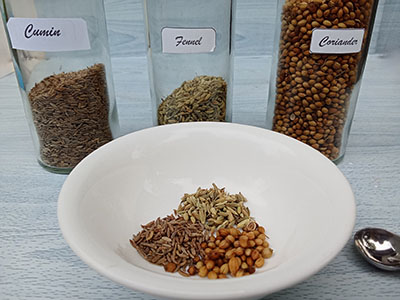 Ingredients
Ingredients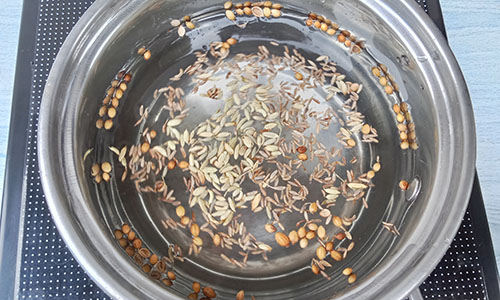
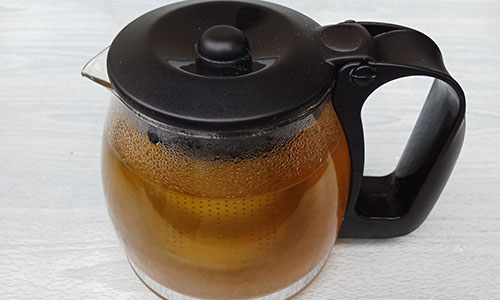
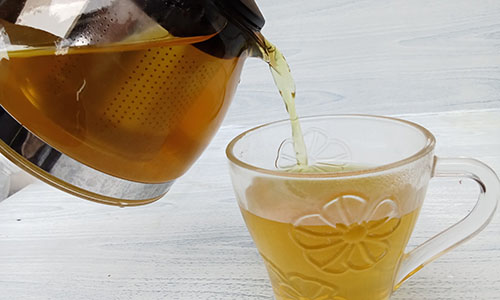
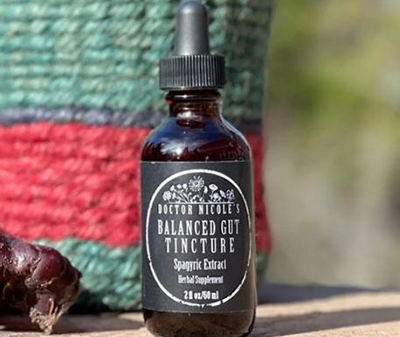
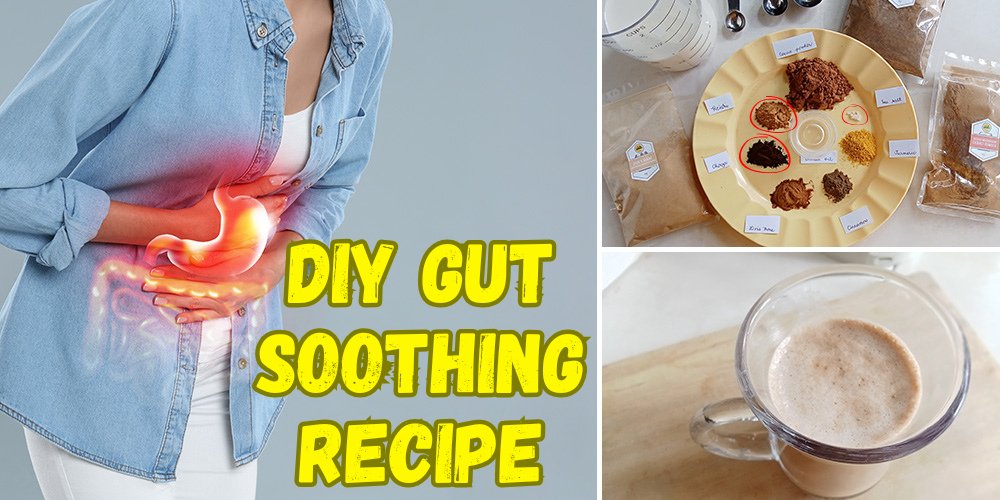
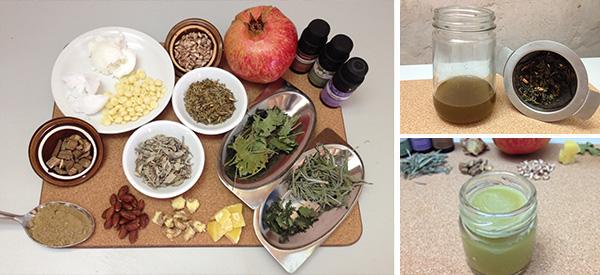
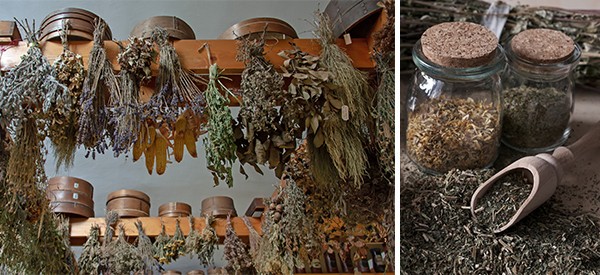
WE LOVE ALL THIS GREAT INFORMATION AND WE LOVE FORAGING PEOPLE NEED TO GET BACK TO DOING THINGS OLDSCHOOL WAYS LIKE ARE GRANDPARENTS DID 🇺🇸❗️
Thanks for your help and support love getting your emails